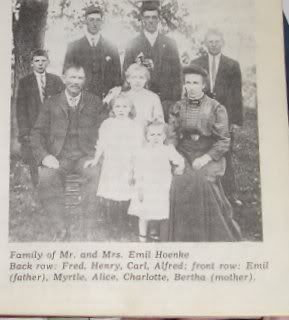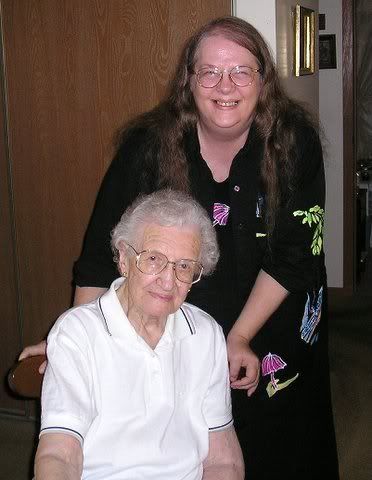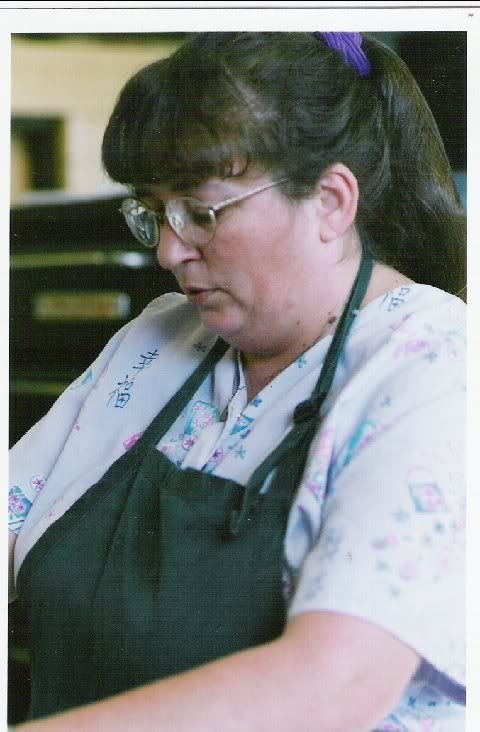Aha! An Interview ... what goes around, comes around ;) Loved it!
Good morning … this is just me. It’s already after 6 am so this will not be a very long entry. Primarily this morning, we responded to an email request from a student to talk about what we do at work. I am enclosing that response here, because as you know it is like everything we do … part of us and most parts of us are this blog. I am doing something else this morning I’ve thought of for a long while. I am going to try getting in touch with someone through UIC to publish somewhere the video you see at the heading of my daily entries. It is a very far removed chance it could be used, but we decided to give it that chance anyway. We’re sending it first to someone in charge of marketing. We’ll see.I very much appreciated this on-line interview. It made us feel significant this morning!
Dear Mrs. ***,
I would be happy to help you out. The site with the rain was the blog I was using to post my school work for my Masters work in Educational Psychology at Capella University. We had a similar assignment and as a student I can imagine that you are under a deadline. Only a student would have found that blog. I appreciate your interest.
I work as a counselor/social worker at *** Center, which is a day training center for adults with developmental disabilities in Chicago. My title is QHSP or Qualified Human Service Professional. I needed for this position a BA in psychology, or another social science related degree and one year experience. I received that experience from working my first year in a double position of a direct support person (DSPs work hands on in a group environment with the individuals served for the majority of the day). DSPs only need to graduate high school.
The responsibilities change from location to location, because QHSPs do case management, but they also do various management related activities that the Administrators have available. Usually an Administrator of a facility will have a masters or doctorate degree. I am responsible for a caseload of 24 people, staff training including the DSPs and a QHSP Intern, program development, and accreditation for the center. I inherited these responsibilities throughout my seven years on the job.
QHSPs and DSPs need to be registered in Illinois on the Nurses register. That means that each need to go through 40 hours of classroom teaching and 80 hours on-the-job when they are hired, and then for the DSPs weekly sessions thereafter. In addition to the initial training QHSPs need to complete 12 hours CEU training each year by attending lectures and workshops. The DSP course work includes seven areas such as first aid training, communication, and records management. The course work for a QHSP might include areas such as leadership training, behavior management, or statistical analysis.
I guess I am now explaining two positions, but it is easier to explain my position as a QHSP in comparison to the DSP position. DSPs earn approximately $17,550-21,450 a year. I am a relatively well paid QHSP earning $43,000 a year. Because we work at a small private facility we usually receive a 3-5% cost of wage increase each year. Most QHSP do not have the accreditation responsibilities, but we are a small facility and my boss is an 80 year old nun who chose to delegate the work. I do a good amount of overtime hours and that is how she justified the higher income for me, whereas my peer makes approximately $4,000 less. I don't consider this a lot of money, but it is enough considering people are usually not paid very high in the field of developmental disabilities. I think of it as one of the lowest paid fields in both psychology and across the nation as to all fields. I am thinking that even child day care earns more than a typical DSP.
I explained above my work roles. To explain a little more fully ... 1) in the role of a case manager I oversee particular clients. I work with their behavioral issues, case file, family problems, and very importantly goal management. Once a year there is an annual meeting I facilitate with the client, their parent, the administrator, staff, the state, and other interested parties. At this meeting we discuss the past year's work and the client’s strengths, abilities, preferences, and needs. It is very client-based. We also establish the goals for the coming year. There are usually at least 3 goals that start, "The individual will ..." If the client has a problem, they are usually sent to their QHSP. In addition, both the other QHSP and I each hold our own weekly group meeting with all the individuals. Her meeting is called Town Hall and mine is called the Thinking Group. 2) In the role of program development I have worked over the course of time the manner in which the program folds out. Prior to me being at the center (it had opened 2 years previous) they were doing various courses such as food preparation, art, and math. Now at the program the various areas are divided between five domains of living, social, personal, community, and achievement. Each of these domains are divided into areas such as self help, physical fitness, social responsibility, functional math and money, community knowledge, work skills, etc. At our center, which is rather unique and a role model for centers on the Southside of Chicago our groups are divided into about 5-12 people and the DSP is on a schedule to go through each of theses areas tuning materials and resources I make available to her group. The groups are divided by level of achievement, so the work can be sculpted to fit individual interests and ability. 3) Staff training we have discussed pretty much above. I lead weekly staff training meetings and I work with the QHSP Intern daily. I also find myself being a role model and unofficial ear for the staff. I have an office and throughout the day people wander in and out exploring problems and issues or just taking a little stress break. 4) The accreditation work is the most draining of the others. We are accredited by CARF and follow the regulations of the state to receive about 60% of the centers funding. CARF divides our interests in several areas. They focus on both the program and business aspects of running a center. So areas covered might include: Input, accessibility, information management, rights, health and safety, leadership, governance, technology, human services, case management, community involvement, etc. The most difficult and challenging aspects of CARF are a series of 11 reports and most particularly a project called the Performance Analysis where you develop outcomes for the center and its programs and follow through in an extensive analysis of whether or not the training programs that you have set out are taking a positive affect on the individuals served.
I find my assignments at the center very exciting. But, there is no doubt that I am hehehe overworked. That comes from working in this field - lots of work for few hands. The most stressful component in the work is knowing all that is not getting done while you are taking care of something else. I am a very detail orientated person and it bothers me to have loose strings. I find that all the work is doable, but I need to practice not becoming overwhelmed. When you realize you have such an impact on so many you, or at least I worry about if I am doing well enough for them. This group of people though is very easy to satisfy especially if you remember to maintain daily contact by at least saying hello. Sometimes I get so buried in paperwork in my office I forget. At this point of my client relationships there are few behavior problems that need to be addressed because what there are ... the staff's already been trained to handle. The other major source of stress is having deadlines. Working with the state there is always deadlines, having the annual meetings are deadlines, and certainly the accreditation visits are deadlines. Yeeks!
As far as going to school goes I found that the BA assisted me in being able to think and accomplish deadlines. The work I did in psychology set me up for understanding some of the complexities I take care of now. I have been interested in research writing and that has helped me a lot. There is a lot of writing for people that are adept in the field. I do most of the major writing at our center and it includes anything from the centers annual report, to monthly "Qnotes" on the client’s progress, to the business improvement reports. Anything you do in learning to write better will serve you well. As I look at the differences between the DSPs as high school graduates and QHSPs as BA graduates, I think writing is one of the critical issues. They also don't seem to have the ability to think into problems that are more difficult. They are much more readily going to ask for help solving issues than solving issues themselves. The Q position is generally a problem solving role. We do clause J, which in the job contract calls for "... and anything else." Pay attention to anything on goal-making, self-determination, and critical thinking skills. I have completed about a year and a half of my masters degree in educational psychology. This is assisting me to be more specialized in the area of program development that I wish to go. Ideally someday I could achieve a doctorate degree. I know I have the intelligence, but there is a lot of day to day responsibilities in getting work done on time and that kind of stress is difficult for me with school and on the job. I want to focus my work on understanding how people think and learn. I want to teach them "self skills" such as self-determination, self-esteem, self-regulation, etc.
Lastly, do I like the job? I very much appreciate the job and what it has allowed me to learn. I have always liked learning. I love the people and I feel like I am doing something worthwhile. I do find now though that I appreciate teaching the intern how to do aspects of my job, particularly with the client base and all the annual meetings. I will be ready to let go of this responsibility soon. I don't find the jobs that I already know how to do as interesting as the things I am learning to do. At this point, my boss and I've worked it out that I stay home to work uninterrupted on Mondays. This is very important to me, in that sometimes it is easier for staff and even Administrator to come for assistance, which is very gratifying, but not conducive to getting other responsibilities cared for that no one else can do. I find the more involved I get in school, the more I'd like to do that work without any breaks. I just want to study and write and think.
Ok, that's pretty much it. If you have any more questions or need to understand something a little better ... do not hesitate to write. Again, I've been in your situation and I wanted to accomplish this good deed hehehe. You found my blog on education. It was located here: http://masterswork.blogspot.com/. My regular blog where I really hang out is at http://aynetal3.blogspot.com/. This covers the other day to day aspects of my life. I am unusual in the field, in that I have Multiple personality disorder, so working in the field means accomplishing much more than all that's been listed above. It means that I set goals for ourselves to get through the day including figuring out again and again how to get the household cared for, friendships realized, and personal life managed. I see a psychiatrist once a week and he assists me in keeping everything running on an even keel. I find I'm an oddity amongst the graduate students in that many of them want to "fix" people who are mentally ill. I recognize that "I am" mentally ill and I think ... ok, that's fine, but I still have to bring home the kitty food ... I mean bacon.
Please feel free to visit either site and quote anything you wish. I would however, like to see your final copy of the paper. I will be posting this letter to my blog because it’s a pretty good summary and you asked great questions. I would also consider posting your paper as well, if you would like. I'm honored in your interest. I am happy that you found us and have given us the opportunity to share with you. Our best wishes. Good luck!
















